Ministerial responsepublished at 11:44 GMT 19 February 2015
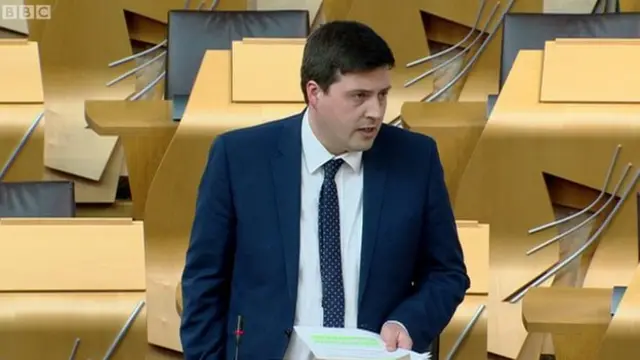
Health Improvement Minister Jamie Hepburn
Health and Improvement Minister Jamie Hepburn says he is exploring the issue with Cosla, but the changes were brought in by the UK government.
Ailsa Brown and Craig Hutchison

Health Improvement Minister Jamie Hepburn
Health and Improvement Minister Jamie Hepburn says he is exploring the issue with Cosla, but the changes were brought in by the UK government.
The Royal British Legion, external says, on its website, veterans injured during service are having to give up most of their compensation to pay for the costs of their social care.
Military compensation is awarded as recompense for the pain, suffering and loss of amenity experienced by injured Service personnel and veterans; it should not be treated as normal income, its says.
 Image source, PA
Image source, PAThe UK government says it works hard to ensure veterans are treated with "the dignity they deserve"
"It's unfair and has to change!" states the website.
Labour MSP Ken Macintosh asks the Scottish government whether it will respond to the Insult to Injury campaign and ensure that war pensioners are treated fairly.
General questions is up next.
The questions are as follows:
1. Ken Macintosh: To ask the Scottish Government whether it will respond to the Insult to Injury campaign and ensure that war pensioners are treated fairly. (S4O-04021)
2. Mark McDonald: To ask the Scottish Government what information it has on the average length of time taken to process applications for Protecting Vulnerable Groups Scheme membership for people seeking employment in the care sector. (S4O-04022)
3. Bob Doris: To ask the Scottish Government when it last met NHS Lanarkshire and what matters were discussed. (S4O-04023)
4. Murdo Fraser: To ask the Scottish Government how it assists farmers who wish to remove silt from river beds. (S4O-04024)
5. Malcolm Chisholm: To ask the Scottish Government what its position is on the implementation of minimum staffing levels for all professions in hospitals, as recommended by the former chief nursing officer, Anne Jarvie, and Professor Derek Bell. (S4O-04025)
6. Patrick Harvie: To ask the Scottish Government what its position is on the privacy concerns raised by the Open Rights Group regarding the proposed amendments to the National Health Service Central Register (Scotland) Regulations 2006. (S4O-04026)
7. Lewis Macdonald: To ask the Scottish Government when the Cabinet Secretary for Justice was first aware that Police Scotland intended to consult on a possible merger of A and B Divisions. (S4O-04027)
8. John Lamont: To ask the Scottish Government when ministers last met representatives of NHS Borders and what issues were discussed. (S4O-04028)
9. Nanette Milne: To ask the Scottish Government what assessment it has made of GP surgery provision in Aberdeen city and shire. (S4O-04029)
10. Johann Lamont: To ask the Scottish Government what steps it is taking to tackle homelessness. (S4O-04030)
That concludes our coverage of the European and External Relations Committee, you will be able to see it in full on BBC Scotland's Democracy Live.
Next up is General question time.
The committee is suspended due to an interruption from the audience but returns promptly.
And coming up we will be bringing you extra coverage, with the Justice Sub-Committee on Policing taking evidence on stop-and-search from Chief Constable Sir Stephen House.
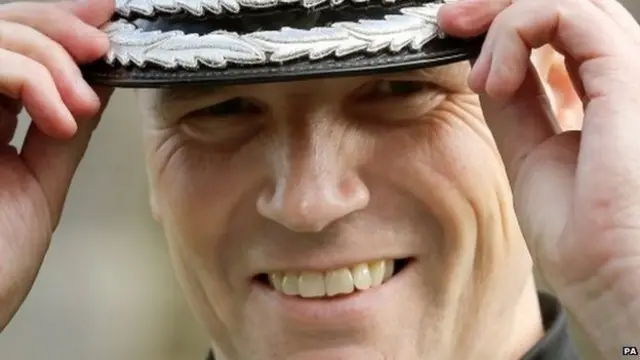 Image source, PA
Image source, PASir Stephen House
Sir Stephen's appearance comes days after he admitted to the police watchdog that statistics his force released on stop-and-search were "not 100% accurate" and were "not fit for public consumption".
If you prefer, you can watch Green MSP Patrick Harvie's member's debate on young voters and school debates can be watched in full at BBC Scotland Democracy Live.
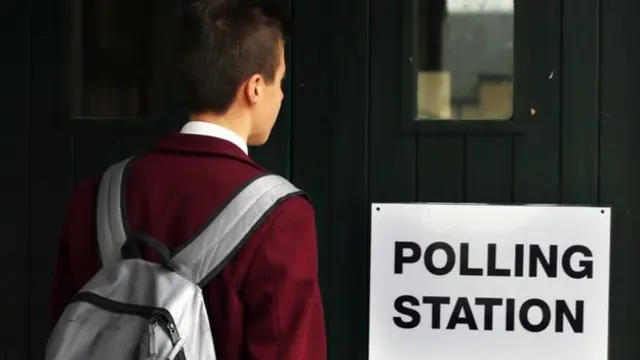
Young voter
Conservative MSP Jamie McGrigor asks which sectors of the UK economy might gain and which might lose out from TTIP.
Lord Livingston says it is "a case of imports and exports".
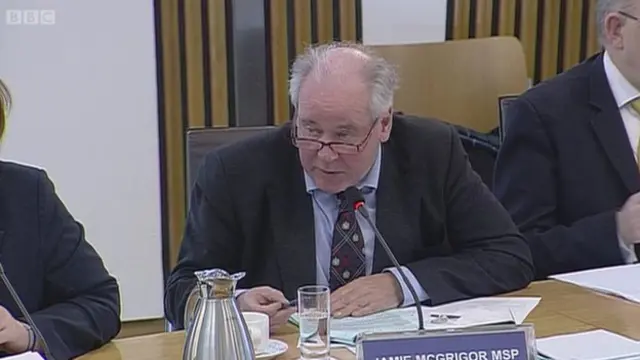
Conservative MSP Jamie McGrigor
The car industry and the food and drink industry "should do well" he says and will particularly aid small companies.
In terms of areas which might lose out the technical machinery market which the US is particularly strong in and maybe on some parts of energy production he says.
The controversial Transatlantic Trade and Investment Partnership, now generally known as TTIP, is primarily a deal to cut tariffs and regulatory barriers to trade between the US and EU countries, making it easier for companies on both sides of the Atlantic to access each other's markets.
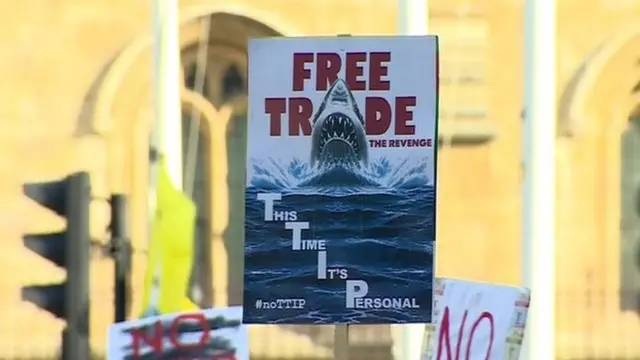
Industries it would affect include pharmaceuticals, cars, energy, finance, chemicals, clothing and food and drink.
In Scotland, critics have expressed concern about the potential impact TTIP might have on the NHS, but there have been protests across Europe.
Lord Livingston says if you listen to the European Commission you will hear very strongly that public services are not included in TTIP and are not intended to be.
If you listen to the commission they make it very clear the NHS is not included., he says.
The UK government is very sure it is not included and nor does it seek to have it included, he says.
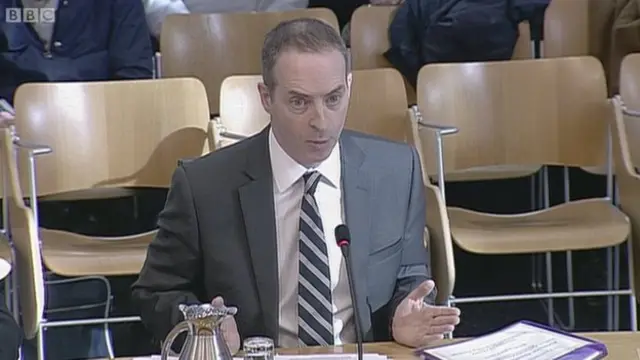
Lord Livingston, Minister of State for Trade and Investment, UK government.
I haven't met another country around Europe who wants their publicly funded health service in TTIP he says.
In terms of America he says a statement made said there had been a lot of discussion about public services but was happy to confirm it was not looking to include them in TTIP.
Committee Convener Christina McKelvie kicks off the second evidence session.
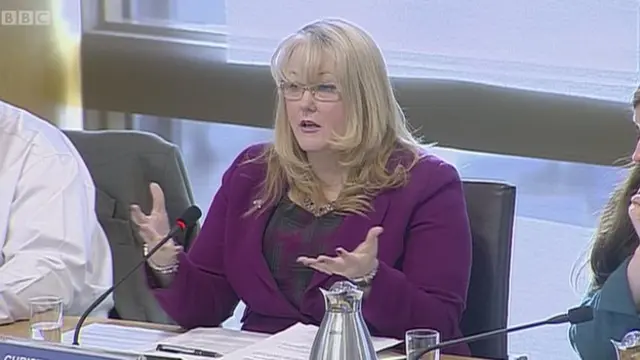
Committee Convener Christina McKelvie
Next on the agenda is evidence on the Transatlantic Trade and Investment Partnership (TTIP) - implications for Scotland from Lord Livingston, Minister of State for Trade and Investment, and Edward Barker, Head of Transatlantic and International Unit, Department for Business, Innovation and Skills, UK Government.
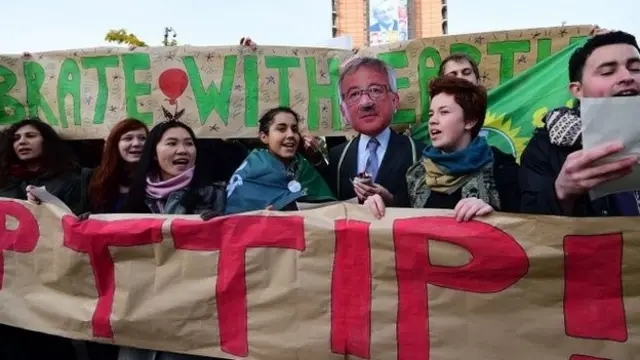
TTIP protest
Committee suspends briefly to welcome the next panel of witnesses.
Lukas Van Damme, Deputy General Representative, General Representation of the Government of Flanders in the UK says of the strategic objectives indentified since June last year, the priority is "the duty to defend our interests internationally".
The most important lever to that end is the European Union, "Flanders wants a strong performing EU" he says.
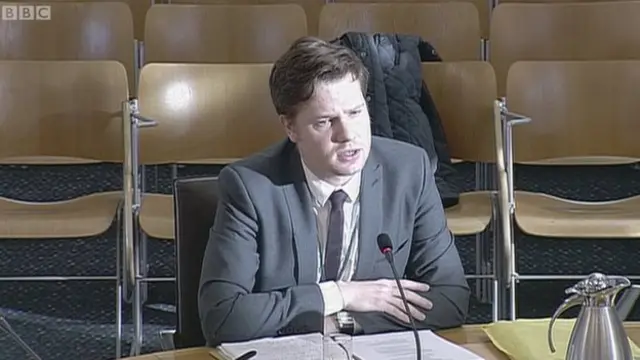
Lukas Van Damme, Deputy General Representative, General Representation of the Government of Flanders in the UK.
Flanders representation abroad and internationalisation of the Flemish economy is also vastly important he says.
María Ángeles Elorza Zubiría says internalisation is a tool to reactivate the economy and create jobs.
We want to intensify our international presence she says and showcase the Basque country internationally, if we want to attract investors and tourists, says the Basque government reperesentative.
The key tool is the Basque country brand, what makes us distinctive and interesting she says.
María Ángeles Elorza Zubiría, General Secretary of Foreign Affairs, from the Basque government says traditionally the Basques society has had a high level of contacts abroad.
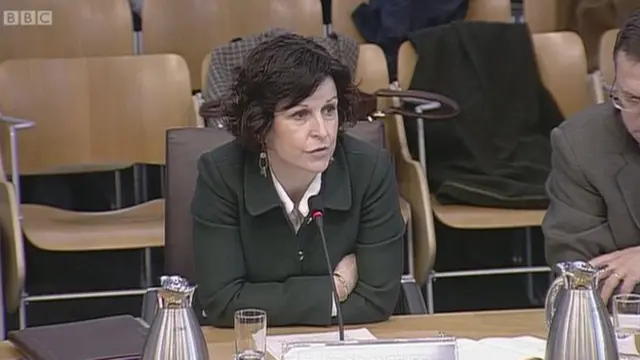
María Ángeles Elorza Zubiría, General Secretary of Foreign Affairs, Basque Government.
Ms Ángeles Elorza Zubiría says internationalisation is more and more on the Basque government's agenda as we live in a globalised context.
Mr i Saigi says Catalonia has had a strong governmental presence in Brussels since 1986, with a permanent representative to the European Union.
At the moment the focus is very much on the Juncker plan says the Catalan representative - to try to increase the peoples participation in the decision making process.
Mr i Saigi says the priority is trying to manage and ensure European funds are available to Catalan companies and Catalan people.
Roger Albinyana i Saigí, Secretary for Foreign and European Affairs, with the government of Catalonia says the Scottish Parliament is a beautiful building, which was of course designed by a fellow Catalonian Enric Miralles.
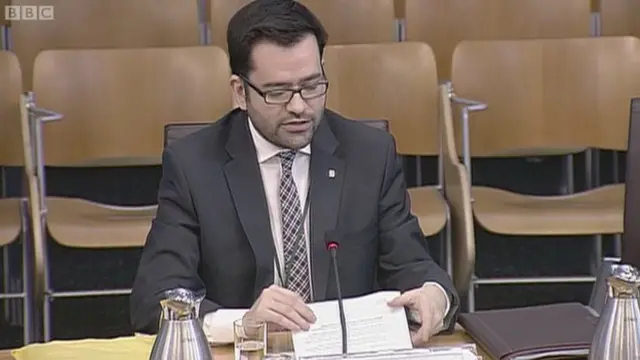
Roger Albinyana i Saigí, Secretary for Foreign and European Affairs.
Mr Albinyana i Saigi says "foreign action is an instrument which should serve the need of Catalonia and its people."
Committee convener Christina McKelvie gets us underway, introducing the witnesses.
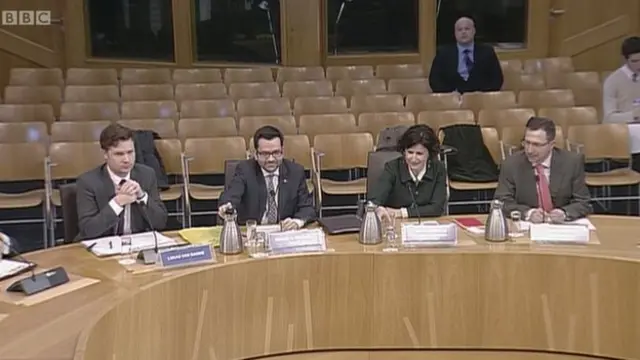
The witnesses
MSPs are taking evidence on Scotland's international engagement and TTIP.
They will firstly take evidence from Roger Albinyana i Saigí, Secretary for Foreign and European Affairs, with the government of Catalonia;
 Image source, Getty Images
Image source, Getty ImagesBarcelona
María Ángeles Elorza Zubiría, General Secretary of Foreign Affairs, and Mikel Antón Zarragoitia, European Affairs Director from the Basque government and Lukas Van Damme, Deputy General Representative, General Representation of the Government of Flanders in the UK.
The committee will then take evidence from UK Trade and Investment Minister Lord Livingston on the Transatlantic Trade and Investment Partnership.